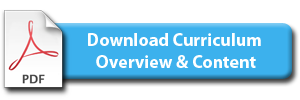National Curriculum
The Ecclesbourne School follows the National Curriculum
The national curriculum for music aims to ensure that all pupils:
-
Perform, listen to, review and evaluate music across a range of historical periods, genres, styles and traditions, including the works of the great composers and Musicians
-
Learn to sing and to use their voices, to create and compose music on their own and with others, have the opportunity to learn a musical instrument, use technology appropriately and have the opportunity to progress to the next level of musical excellence
-
Understand and explore how music is created, produced and communicated, including through the inter-related dimensions: pitch, duration, dynamics, tempo, timbre, texture, structure and appropriate musical notations
Music Development Plan
The Ecclesbourne School is committed to providing high-quality music education for all students. See our current Music Development plan for more information on the scope and detail of our offer to students
2025/26 Music Development Plan
Curriculum Intent
The year 7 music curriculum is designed to introduce students to several different music genres and to develop their instrumental skills. The year 8 curriculum builds on this during which students start working in groups more frequently building on skills learnt in year 7, particularly during topics such as reggae and the band project. During year 9, students are able to further develop themselves as well-rounded musicians in preparation for the GCSE music course and wider life skills.

Course Assessment (update pending)
|
Grade |
Assessment Detail |
|
9 |
Students start with a judgement that runs through their work, with each section reflecting this judgement and conclusion mirroring the introduction. Facts, figures, names and dates are deployed to support arguments and weigh ideas by comparing and evaluating them throughout. Students will support and challenge source material within its context and afterward. They will explicitly refer to utility and evaluate material through discrimination. There may still be areas that are irrelevant but the overall impression is convincing. |
|
8 |
Students will use specific and detailed knowldge in a clear structure to reach a well-supported judgement. A debate will be created that compares ideas an views with facts, statistics and evaluation. Students may make mistakes but their argument will be well developed with analysis and evaluation throughout. Students will analyse source material in the light of the interpretation it represents and will weigh it in therms of utility and reliability to answer specific questions. Students will routinely exercise discrimination in their choice of quotes though they may not always be entirely convincing. |
|
7 |
Students’ essays and answers will analyse the information provided, using facts effectively to support arguments and challenge points of view. Students will compare ideas and reach an evaluative conclusion. Students analyse and evaluate source material in its context, using the provenance, to assess utility and reliability but only explain when it helps answer the question. Students may still make mistakes but it is clear they are using the sources carefully and with discrimination. |
|
6 |
Students will make very few factual errors and organise answers into a proper essay. Students will analyse more than one side of a debate and there will evaluation of ideas in places. Students use sources as evidence rather than as information all the time, comparing and contrasting them with each other and with prior knowledge. Students can link interpretations to what is being studied and explain them fully with some analysis on how to use them. |
|
5 |
Most of the names, dates and statistics will be accurate and relevant to support a clear argument in paragraphs. Students will cover more than one side of a question, analysing for most of their answer and evaluating in conclusions. Students will routinely evaluate sources for utility by using their provenance before using their content to support answers. When looking at reliability, students may not be entirely relevant. Students will be able to explain why people have different views and how they are created, you can use these views to assess other ideas and questions. |
|
4 |
Students use paragraphs well and logically with accurate and relevant names, dates and statistics. Students will have an overall argument, and a judgement, that is linked to the question, potentially covering two sides. Students will analyse. Students will evaluate source material using provenance – looking at utility for the most part, quoting them to answer questions. Students will be able to explain why different views exist and will understand how, but may not be able to properly support this yet. |
|
3 |
Students use paragraphs to make a point and use specific names and dates and facts with some mistakes. Students make mostly valid and correct judgements based on the question that are explained. Students will focus on what sources say to answer a question but will try to use their provenance to work out if they are reliable or useful. Students will try to explain how and why different people have different views of History and will be valid but without analysis. |
|
2 |
Students use full sentences and paragraphs with names and dates, making some mistakes but not many. Students make valid judgements and reach a conclusion and try to explain themselves. Students will quote from and explain what sources say to answer a question. Students can name and identify different views by different people but can’t explain them yet. |
|
1 |
Students use full sentences and will use names and dates, though you’ll make mistakes. Students make valid suggestions without detail but link to what is asked, ‘telling the story’. Students may state whether sources are reliable but will still just use them for information. Students understand different groups of people see History in different ways but not how or why. |
If you have any questions or queries relating to the Music curriculum please email headofart@ecclesbourne.derbyshire.sch.uk for more information.